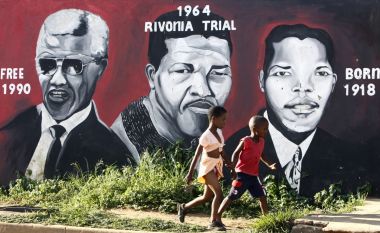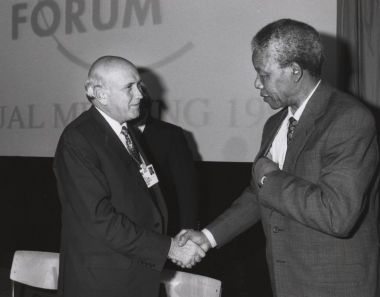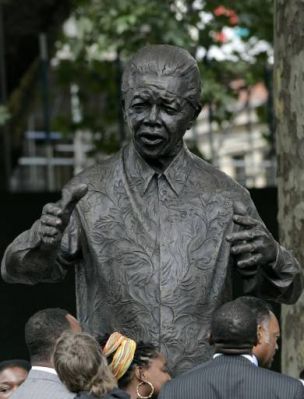World marks Nelson Mandela's release, 25 years on

Twenty-five years ago today Nelson Mandela, one of the most heroic figures of his age, was released from prison. The event marked not only the culmination of a campaign which began almost as soon as he was sentenced to life imprisonment in 1964, but the beginning of the end for the apartheid regime which had kept him in jail for 27 years and made South Africa a pariah state.
The release had been trailed by the government of President F W De Klerk, with journalists gathered at the then DF Malan Airport in Cape Town for the arrival of VIPs for the occasion.
The Nelson Mandela Foundation records that they were summoned to a press conference that afternoon with the president, who began: "Good afternoon ladies and gentlemen, I am sorry to have disrupted your Saturday afternoon.
"In pursuance of my opening address to Parliament, I am now in a position to announce that Mr Mandela will be released at the Victor Verster Prison on Sunday the 11th of February at about 3 pm."
Unknown to any of them, he and Mandela had had a six-hour meeting in Cape Town the previous evening. De Klerk had told him that he was to be flown to Johannesburg and released in Soweto. However, Mandela had objected: he wanted to be released from the Victor Verster prison where he had spent the previous 14 months and he wanted seven days' grace for "his people" to prepare for the event.
Later he recalled: "He said to me, that 'we will fly you to Johannesburg and we will keep you elsewhere ... on Sunday afternoon we will hand you over to your people'. I said 'No, that's not fair because you are not giving our people enough time to see me, I mean to prepare for my release. Give me seven days. Let them prepare.' The government wouldn't agree to that."
So the stage was set for the iconic images of Mandela walking out of prison for the last time.

What followed was an unprecedented example of principled nation-building. The African National Congress was un-banned and has held power ever since the first post-apartheid elections. The structures of apartheid were demolished. South Africa's nuclear weapons were destroyed. A Truth and Reconciliation Commission under the chairmanship of Archbishop Desmond Tutu sought to deliver on its ambitious title: most South Africans thought that it did. Mandela himself became president in 1994, at the age of 75, and served a single term in the position.
The story has not all been of progress and hopefulness. Unemployment has been stubbornly high, though many black people have risen to middle and upper class income levels. Economic growth has been patchy, and South Africa has suffered grievously from the HIV/Aids epidemic, which under President Thabo Mbeki the government failed to address. The country has also struggled to cope with waves of refugees from surrounding countries.
However, the threatened meltdown after Mandela was released and apartheid ended failed to materialise – and much of that was due to the moral example of Mandela himself.

Now, a quarter of a century later, Archbishop Thabo Makgoba of Cape Town has called on people of faith to celebrate the anniversary of the release of Nelson Mandela by committing to "a new struggle ... for social cohesion and the end of inequality".
In a statement issued from a meeting of the Synod of Bishops in Durban, Makgoba said: "I am calling on church leaders and their faithful to honour and mark the 25th anniversary of the release of Madiba, our icon and the father of our democracy, at 4.14 pm on February 11."
He urged interfaith groups around the country to spend 67 minutes – one for every year of Mandela's fight for justice – converging on either their local court or prison, conducting a short march and holding prayers.
"I appeal to people of faith to celebrate Madiba's release by committing themselves to a new struggle, a struggle for social cohesion and the end of inequality," he said.
"Whether it's a few of you, or hundreds of you, be as creative as you like in what you do – just mark the day and the moment, and commit to the new struggle."
Whether we mark the day and the hour or not, it's a timely reminded that the struggle goes on. Neither South Africa, nor anywhere else in the world, has yet seen the Kingdom of God come on earth.











